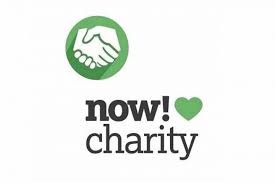
Community Now! - Pilot launching Winter 2021
Our History
In 1993, the Furniture Now! project was founded in Lewes by a group of environmental activists known as Common Cause Cooperative. Its membership was aware of the levels of poverty experienced by sections of the community, proceeding to purchase a milk float vehicle and conduct regular voluntary shifts picking up unwanted furniture and dropping items at households in need.
As popularity for our services grew, in 1995 Furniture Now! was formally recognised as a registered charity. In the 26 years since its incorporation, our organisation has observed several changes including the introduction of three retail sites and the undertaking of a full rebranding exercise to become the Now! Charity Group in 2015.
The rebranding exercise included the introduction of ‘Training Now’, a secondary arm of the charity alongside Furniture Now, existing to deliver a range of courses from its dedicated training centre facilities in Eastbourne and Hailsham.
Since 2018, the manner in which NOW! achieves its wider community outcomes has been subject to review and, since early 2020, the exploration of transitioning Training Now to a Community Now proposal has been a working project overseen by our management team.
What is Community Now?
The concept of Community Now shall focus on a three-pronged support offer:
Community Development Fund - A grant giving scheme which utilises a proportion of profits achieved through Furniture Now by redistributing monies and building relationships with other local charities, voluntary groups and educational sites who are seeking to deliver community projects.
Free facility space - Free access to facility space at our commercial properties to deliver community projects.
Staff giveback scheme - Access to volunteer support in the form of a workplace community volunteering scheme.
Community work supported via Community Now shall be identified and categorised under two impact themes:
Environment – Supporting projects which encourage the reuse and recycling of items i.e. a community upcycling café.
Poverty - Supporting projects which address the causes of local household poverty, be it furniture, food or financial with the overall purpose of improving the quality of living for people at home.


